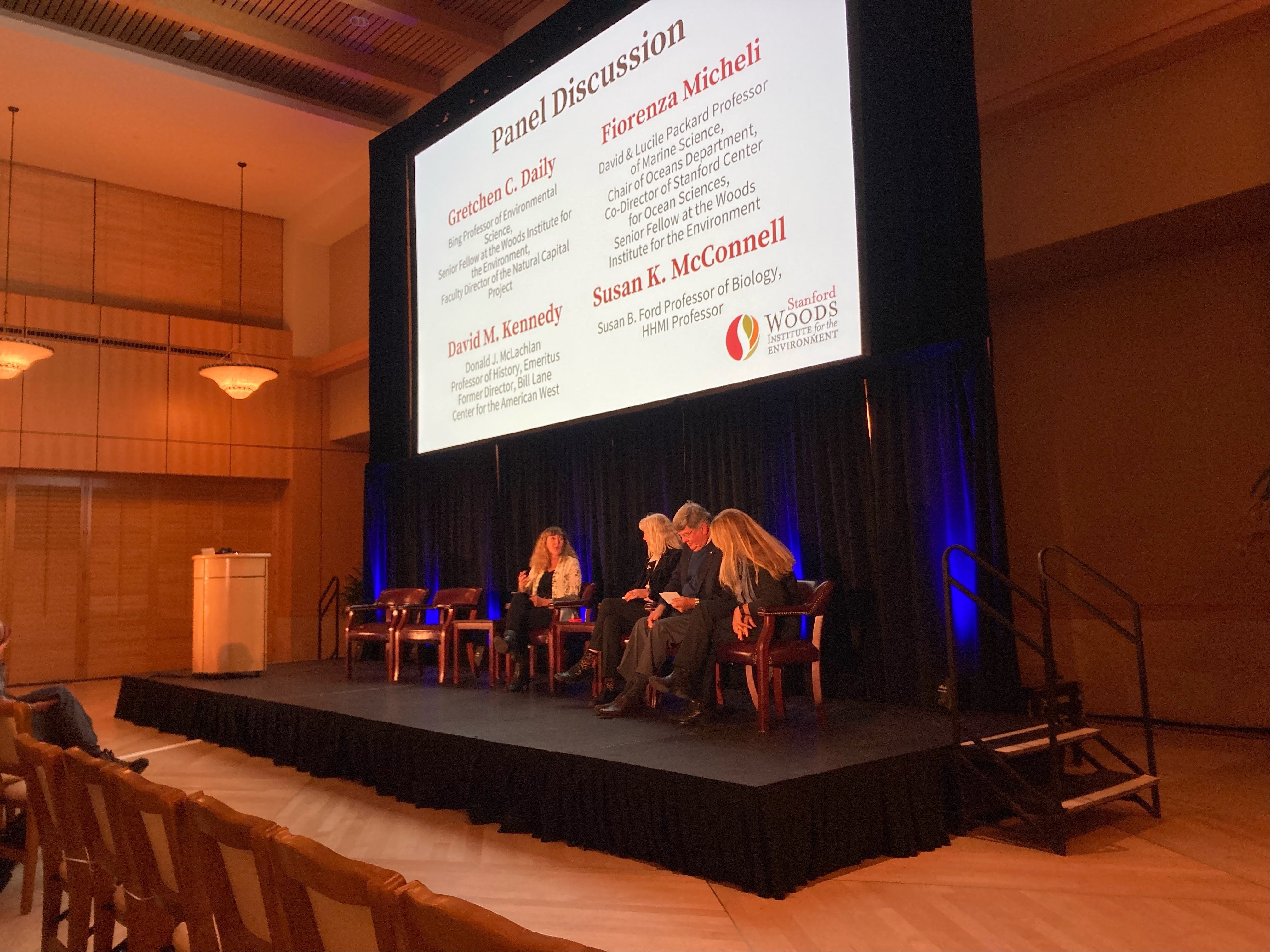Stanford professors and experts on Monterey Bay shared insights into Monterey’s ecological collapse and recovery and emphasized the importance of ecological restoration at a Wednesday event hosted by the Woods Institute for the Environment, a branch of the Doerr School of Sustainability.
Dutch photographer Frans Lanting and writer Chris Eckstrom kickstarted the event by sharing insights on the biodiversity and history of Monterey Bay, based on their recently published book “Bay of Life: From Wind to Whales.”
“Many environmental problems require solutions that complement and extend beyond science and policy. Art plays an essential role as well,” wrote Woods Institute associate communications director Christine Black in a statement to The Daily.
Black wrote that the event was “a wonderful opportunity to bring interdisciplinary scholars together with artists, creating an educational as well as emotional experience.”
Environmental science professor Gretchen Daily, marine science professor Fiorenza Micheli and history professor David Kennedy participated in a panel discussion led by biology professor Susan McConnell after Lanting and Eckstrom’s presentation. They delved into the intersection of biology and environmental science, stressing the importance of protecting nature and wildlife.
“Preserving resources has to be integrated into decision making about development,” Daily said.
Lanting and Eckstrom shared in their presentation that the habits of fishers, loggers and whalers during the California Gold Rush exploited rich natural resources. According to them, this damage was undone due to the work of conservationists, scientists and politicians.
Monterey Bay is now a biodiversity hotspot, playing a crucial role in the health of the entire ecosystem, Lanting and Eckstrom said.
“This investment in ocean health plays a very important role in addressing some of the grand challenges that we’re facing, like climate change, food insecurity and loss of biodiversity,” Micheli said.
The panelists said the Monterey Bay restoration could serve as an example for other regions, as they considered whether or not it is possible for other natural ecosystems to flourish after ecological collapse.
“The good news about the recovery is that it’s not unique to the area,” Micheli said. She emphasized the significance of human intervention in addressing historical exploitation and facilitating the comeback of these ecosystems.
Kennedy, Lanting and Eckstrom closed by calling on participants to stay engaged with the fight for ecological preservation.
“We need to use planet Earth responsibly. When we think about pristine nature as something separate from the lives we actually lead, we have a problem,” Kennedy said.
